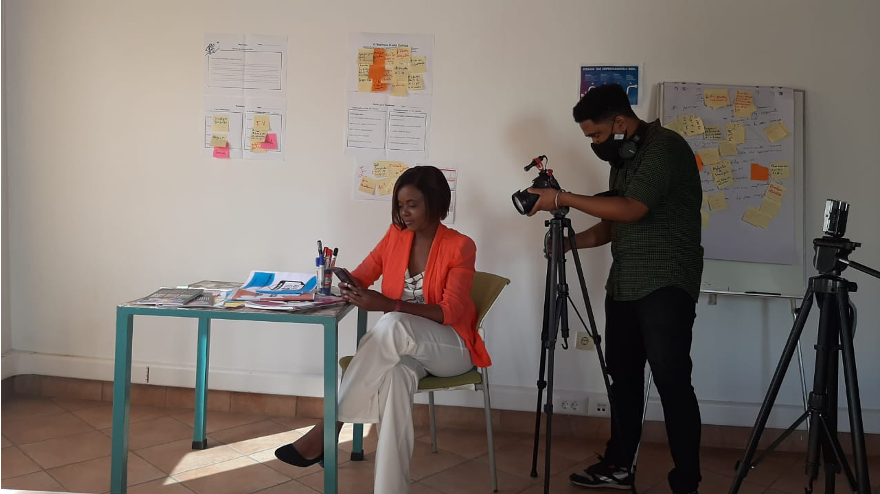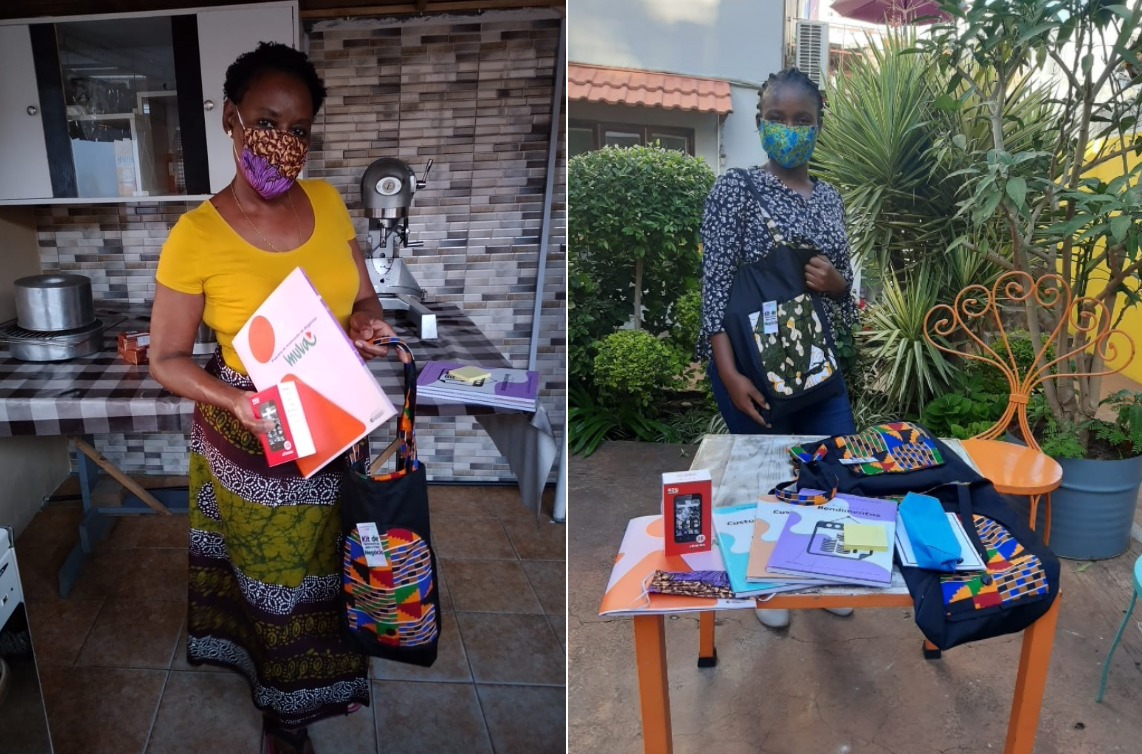By Francisco Moraes Leitao Campos and Cansu Birce Gokalp, The World Bank
While the unfolding economic recession due to COVID-19 affects almost everyone in one way or another, World Bank teams find innovative ways to adapt their activities and respond to the needs of women.
The Women Entrepreneurship Finance Initiative (We-Fi)’s project in Mozambique aims to expand access to markets and finance of women-owned/led Small and Medium Enterprises (SMEs). One of its core capacity building interventions is the Gender-Centered Design Program (MUVA PAM), which is an acceleration program that supports women entrepreneurs in Mozambique to become more innovative and efficient, while developing opportunities and solutions for other women as suppliers, workers, and clients. Shortly after the country embraced lockdown measures, the project team transformed the content and structure of the program to adapt to the new health and safety situation.
Gender centered design helps apply a gender lens to business planning and development. The focus of the training program has been adapted to increase the importance of business resilience and survival. It involves practical tools regarding the identification of business opportunities in order to keep the company operating, remodeling the business in terms of financials and operations, and defining the new needs, focusing on the changes brought by the pandemic.
The delivery of MUVA PAM delivery has been adjusted due to the COVID-19 pandemic. In the initial plan (face-to-face), the program lasted for 6 months for each entrepreneur: three 3-days bootcamps (9 days total), individual support including two market research assessments, follow-up meetings, and prototype technical support. Each cohort included 12 women entrepreneurs.
Now all content is virtual. Before the training started, each participant received a toolkit with a smartphone (and data to access internet), financial templates, exercises books, training agenda, and other materials. The toolkit also includes masks for the families and prevention information about COVID-19.
The project team created videos, workbooks and other participatory methods to closely engage with the participants. The program has been adapted to last 3 months, with three 5-days virtual bootcamps (15 days total), comprising of video classes, WhatsApp groups, phone calls, Zoom meetings, and individual assignments. The program still includes two market research assessments, but fieldwork follows health & safety measures, and a shorter prototype technical support.
Given the online delivery, the program expanded to cohorts of 20 women entrepreneurs each. In addition to the virtual classes, the entrepreneurs have participated in online workshops with external guests, who share their experiences, successes and failures. These sessions are broadcasted via Facebook and YouTube to attract an even greater number of women.
The World Bank We-Fi Mozambique project has transformed its gender-center design program after COVID-19. Now all content is virtual. Here are some attendees receiving their toolkits with a smartphone (and data to access internet), financial templates, exercises books, training agenda, masks and prevention information about COVID-19.
Similar to the original format, one of the online bootcamps in the program focuses on a specific analysis around female and male clients, showing entrepreneurs the benefits of having a gender lens throughout their consumer base. Participants identify paths for resilience applying human-centered design and then prepare a prototype to help them emerge stronger the current environment. Throughout this, entrepreneurs have access to experts in design, digital applications, and social media to support testing and implementation.
Initial results are promising. For 80 percent of the participants, this was the first online training of their lives and the excitement among women entrepreneurs was noticeable. For Inês Aurora, coconut oil producer, “one of the opportunities since day one has been to learn about ‘empathy’, putting myself in the position of my customers”. For Rafaela Ngoenha, who owns a beauty salon in Maputo, the program “allowed to expand my vision with regard to the business and gain knowledge how to invest”.
These times call for innovative thinking, perhaps like never before. The project team pivoted and became more resilient in its design of activities to support women facing an uncertain environment. Through participation in a program like this, entrepreneurs leave with an enhanced self-confidence and a roadmap to face the unknown. As many entrepreneurs always point out, resilience is key to being successful. Maybe they will never be able to control the outbreak of a pandemic or any other disrupting event, but the power of a right mindset combined with innovative tools and a strong support system can help them stay persistent in their journey.


